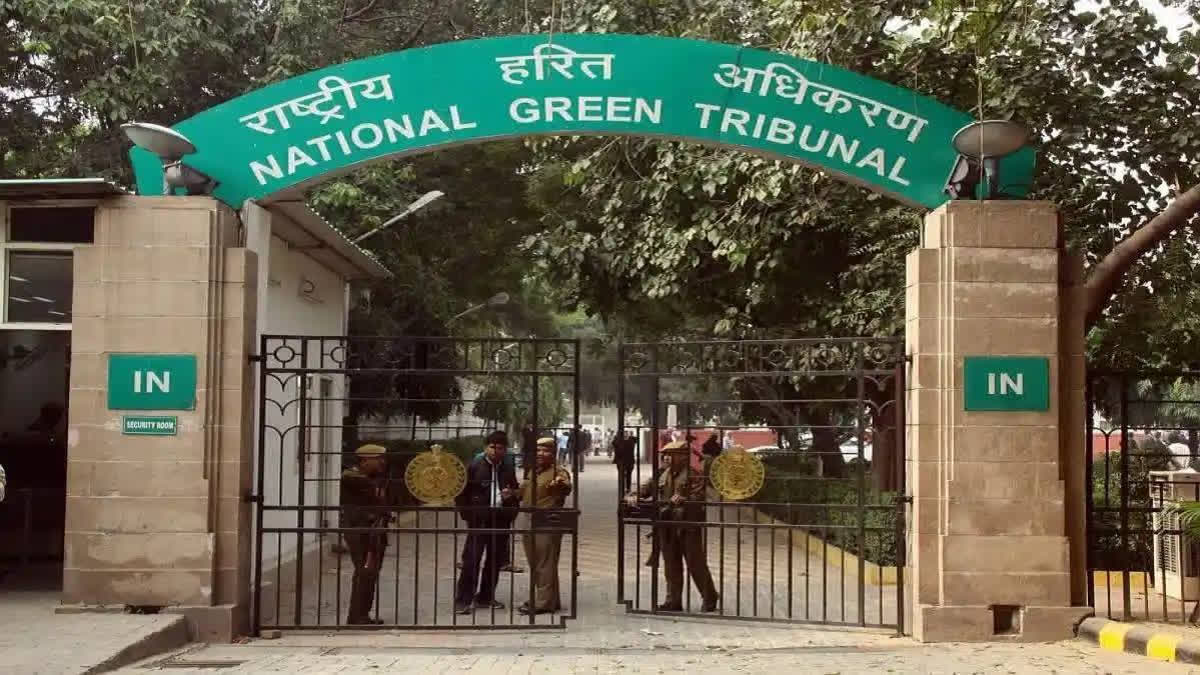Srinagar(Jammu and Kashmir ): The National Green Tribunal (NGT) has ordered local authorities to address the severe pollution in Kashmir's Doodh Ganga and Mamath Kull rivulets, imposing Environmental Compensation (EC) penalties on the relevant departments.
The NGT expressed strong discontent over the state authorities' failure to take effective remedial action despite serious violations found by a joint committee. The Tribunal warned that if the required treatment facilities are not established by the March 31, 2018 deadline set by the Supreme Court, the concerned government secretaries will face prosecution. Additionally, the authorities are directed to take disciplinary action and impose compensation for continued waste management failures harming the environment and public health.
The twin rivulets, tributaries of the Jhelum River, are heavily polluted with untreated sewage and illegal dumping of municipal solid waste, posing significant risks to the environment and nearby communities. According to applicant RTI activist Raja Muzaffer Bhat, the Doodh Ganga river originates from the Pir Panjaal mountains and becomes severely polluted as it flows through Budgam and Srinagar districts, supplying drinking water to approximately 500,000 residents via the Public Health Department’s water filtration plant at Kralpora.
Similarly, the Mamath Kull stream suffers from unscientific dumping of municipal solid waste, including hazardous biomedical waste from local hospitals and clinics, along its banks in the Budgam district. This waste flows into the stream, merging with the Jhelum River and causing extensive environmental degradation.
In response to these concerns, the NGT formed a five-member joint committee to investigate. The committee's January 2022 report confirmed serious violations, including waste dumping on river banks, untreated sewage discharge, and illegal mining activities.
To address sewage pollution, authorities propose constructing modular sewage treatment plants (STPs) with a total capacity of 12.25 million liters per day, expected to be operational within 18 months under the AMRUT-2 scheme. Additionally, the Jal Shakti Department has proposed a comprehensive 125.5 MLD sewerage scheme for Srinagar, including the polluted stretch of the Doodh Ganga, pending funding from the Japan International Cooperation Agency (JICA).
For solid waste management, authorities have initiated measures such as door-to-door waste collection in all urban local bodies (ULBs) and prohibiting illegal dumping near river banks. Sites have been identified for decentralized solid waste management facilities in Budgam district's ULBs. The state government has approved a decentralized solid waste management action plan for all 76 ULBs in Jammu and Kashmir, costing Rs 191.67 crore. This plan includes bio-methanation plants, waste management centers, and aerated pit composting plants.
The NGT directed JKPCC and the Secretary, Department of Environment, to comply with the Supreme Court's order within three months and file a compliance affidavit. The Member Secretary, J&K PCC, is to impose and recover EC within three months, following the principles of ‘Natural Justice,’ and submit an action taken report before the next hearing date.
The Tribunal noted that the show-cause notices issued by the J&K PCC to the Municipal Councils of Budgam and Chadoora for illegal dumping of municipal solid waste lacked details on the violation period and waste quantity. The Member Secretary, J&K PCC, is expected to issue detailed show-cause notices to ensure the process is not invalidated by technical lapses, benefiting the defaulting bodies. EC for illegal riverbed mining will be calculated separately.
With pollution in the rivers posing a direct threat to the local population's health and livelihoods, authorities in Jammu and Kashmir are under pressure to expedite the implementation of proposed solutions and restore these vital water bodies.



